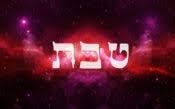The idea behind this book is not to change your views on what is or is not the Ten Commandments. Rather, it is an indepth look at comparing traditionalism to the Torah (first 5 books of the Bible). This book also attempted to explain the need for each commandment and word within; thereby, showing the importance YaHVaH puts on obeying these commandments and words. Ultimately, it is up to you, the reader, to determine which Commandments and Words are THE Ten Commandments. Hopefully, through the use of Scripture, comparison, and explanation; your blessings, knowledge, and obedience will be enhanced.
Many Christian denominations do not honor the Festivals of YaHVaH. Yet, YaHVaH made it abundantly clear that we are to celebrate these times of the year to Him. Why would we deny taking the three weeks time to celebrate our Elohiym every year? The commands to do so are mentioned multiple times throughout the Bible, and they are inscribed on the Tablets of Testimony. Christians believe in the writings and practices of Paul in the New Testament, so why don’t they follow the Feasts? Acts 18:21 states, “but bade them farewell, saying, I [Paul] must by all means keep this feast that cometh in Jerusalem . . . ” Paul was being asked by the Ephesians to remain and preach the Gospel of Yeshua in the synagogue a while longer. Yet, he replies he must keep the feast. Paul knew the importance of the feasts. While preaching to the Corinthians in 1 Corinthians 5:8 about the Festival of Matzoth, Paul says, “Therefore, we should celebrate the feast/festival, not in old leaven, nor in leaven of malice and wickedness, but in unleavened [bread] of sincerity and of truth.” Yeshua celebrated, honored, and kept the three Festivals, as well as the fourth one, Feast of Dedication (Hannukah). We are told to follow His example and live the way He lived. Celebrating the Feasts/Festivals, just as He did, makes sense then.
The Ten Words can be summed up like this: Do not make metal or wooden gods and do not prostrate yourself to them, all the first-born and the first fruits belong to YaHVaH, observe and celebrate the three Festivals (Matzoth, Shavuoth, and Sukkoth), don’t use leaven for Pesach, eat the entire Pesach meal, and do not covet another’s land.
A few Greek words and many Hebrew words were utilized in this book. A listing follows below with definitions for easy reference.
May the blessings of Elohiym always be yours.
Definitions of Greek and Hebrew Words
- Abiyb = 1st month in the Hebrew Biblical calendar, current calendar uses Nissan
- Acher = another
- Adon = Lord
- Asereth HaDevariym = The Ten Words
- Azeleth = departed
- Beth = house
- Chag = Festival
- Eikonos = effigy, likeness, material image
- El = God
- Elohiym = God
- Ervah or ervath = nakedness, pudenda (external female genitalia)
- Galleh or galloth = to go into, to make naked
- Ganav = deception, steal, stealth, theft
- Garen = level floor
- Gediy = male kid goat
- Ha’asiyph = The Ingathering, 3rd Festival, refers to gathering of fruits in the fall, same as Sukkoth
- Lashave = to deceive, falsehood, to lie, to vanity
- Levites = one of the Twelve tribes of Yisrael, they served in the Temple, but not as priests
- Massekhah = a casting of metal, molten image
- Matzoth = Unleavened Bread, 1st Festival
- Mitzrayim = Egypt
- Mitzvah = command
- Mosheh = Moses, writer of the Torah, prophet
- Nissan = see Abiyb above
- Omoiomati = likeness, resemblance, similitude
- Pesach = Passover, meal celebrated on the evening beginning the Festival of Matzoth
- Pesel = carved (wooden) image
- Piylatos = Pilate, the Roman governor during Yeshua’s time
- Qanna = jealous
- Qatziyr = Harvest, 2nd Festival, same as Shavuoth
- Sefer HaBeriyth = The Book of the Covenant written by Mosheh
- Shabbath = Sabbath, seventh day, YaHVaH’s day of rest (in today’s calendar this is sundown on Friday to sundown on Saturday)
- Shalom = peace
- Shavuoth = Weeks, 2nd Festival
- Shema = hear, beginning of a Hebrew mitzvah
- Sukkoth = Booths, Tabernacles, 3rd Festival
- Tablets of Testimony = the two stone tablets inscribed by YaHVaH
- Tanach = Hebrew Old Testament
- Teesh’tachaveh = to do homage, prostrate/submit oneself, worship
- Torah = first five books of the Old Testament
- Yad = hand, help, power
- Yehudiy = Jews
- Yigev = wine press, wine vat
- Yiqqach = he takes hold of
- Yish’kav = he lies down with
- Yisrael = Israel
Return to Table of Contents
Or continue on to Bibliography







